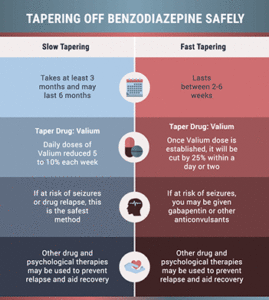

These symptoms can last anywhere from one to four days.Īcute stage: The second stage, also known as the acute stage, usually lasts anywhere from 10 to 14 days.
BENZO WITHDRAWAL INSOMNIA HELP PROFESSIONAL
However, an individual also needs professional treatment and help to successfully move through all three stages from detox to outpatient care.įirst stage: The first symptoms start appearing within six-12 hours of discontinuing the drug. If anything, time is needed to get off the drug fully. Current medical or health issues or conditions.Other drugs or alcohol used during the same time as benzos are used.Benzodiazepine Withdrawal TimelineĪlthough there is little documented research on how long benzodiazepine withdrawal lasts, various factors, which often vary by the individual, can affect this timeline. The symptoms should go away in a week, but they could be prevalent in something known as Post-Acute Withdrawal Syndrome (PAWS), which we will discuss below. The symptoms are intensified symptoms of a pre-existing psychological disorder, which can include anxiety, panic attacks, and insomnia. Those who take intermediate-acting benzodiazepines can experience anxiety after abruptly stopping use of the drugs. Rebound anxiety is defined as the worsening of symptoms upon discontinuation of treatment as compared to baseline symptoms. I would prefer to chat online Rebound Anxiety Months of continuous use can severely impair one’s cognitive abilities to the point that benzodiazepine users will continue to experience confusion and impaired reasoning abilities. Increased anxiety, including panic attacks.Withdrawal symptoms from benzodiazepine drugs include: Research shows that benzodiazepine withdrawal brings on adverse effects, including cognitive complications that have affected visuospatial ability, a processing function, and verbal learning. What You Can Expect From Benzodiazepine Withdrawal This tricks the brain into creating greater dopamine surges and further addiction or drug abuse. When combined with other medications, benzodiazepines can slow the brain’s functions creating surges of dopamine.īenzodiazepines affect the brain’s ability to function, which prompts dopamine-producing neurons to release more dopamine than needed. In short, it slows down the body’s central nervous system. How Benzodiazepines Affect the Brainīenzodiazepines work to reduce the activity of nerves in the brain and spinal cord by enhancing the effects of neurotransmitters in the brain. People who are addicted to benzodiazepines are also at-risk for developing dementia, an illness affecting the brain that causes gradual memory loss and problems with language and motor skills.Įven more severe are the dangers of benzodiazepine addiction or overdose that contribute to emergency and hospital room admissions.ĭepending on the type of drug and its frequency, benzodiazepines differ in terms of what they are most commonly prescribed for and how long they continue to impact the brain.

Regular, long-term abuse of benzodiazepines can result in serious side effects including confusion, slurred speech, seizures or convulsions, severe drowsiness or coma, shakiness, slow heartbeat, difficulty breathing, and severe weakness.

While these drugs have been commonly prescribed to treat anxiety, stress, depression, and sleep disorders, they are not prescribed for long-term use because of the risk of developing an addiction. Long-term use of benzodiazepines is likely to lead to withdrawal symptoms that can take months to overcome. This class of medications, which are called “benzos” for short, includes Ativan, Xanax, Klonopin, Librium, and others. Once hailed as a safe drug alternative in the 1960s, benzodiazepines are mainly used to treat anxiety, but they also are associated with many health risks.


 0 kommentar(er)
0 kommentar(er)
